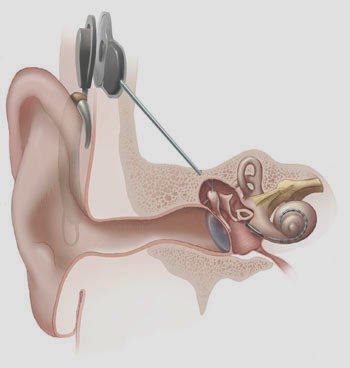 The U.S. Food and Drug Administration approved the first implantable device for people 18 and older with severe or profound sensorineural hearing loss of high-frequency sounds in both ears, but who can still hear low-frequency sounds with or without a hearing aid. The Nucleus Hybrid L24 Cochlear Implant System may help those with this specific kind of hearing loss who do not benefit from conventional hearing aids.
The U.S. Food and Drug Administration approved the first implantable device for people 18 and older with severe or profound sensorineural hearing loss of high-frequency sounds in both ears, but who can still hear low-frequency sounds with or without a hearing aid. The Nucleus Hybrid L24 Cochlear Implant System may help those with this specific kind of hearing loss who do not benefit from conventional hearing aids.
[adsense:336x280:8701650588]
Sensorineural hearing loss is the most common form of hearing loss and occurs when there is damage to the inner ear (cochlea). It may be caused by aging, heredity, exposure to loud noise, drugs that are toxic to the inner ear (e.g., antibiotics), and certain other illnesses. People with severe or profound sensorineural hearing loss of high-frequency sounds may have difficulty hearing faint sounds, understanding people with higher-pitched voices, hearing certain speech sounds, and, in some cases, hearing high-pitched emergency vehicle sirens or common safety alarms, such as smoke detectors.

“Hearing loss greatly impacts the education, employment, and well-being of many Americans,” said Christy Foreman, director of the Office of Device Evaluation at the FDA’s Center for Devices and Radiological Health. “This device may provide improved speech recognition for people with this kind of hearing loss, who have limited treatment options.”
The Nucleus Hybrid L24 Cochlear Implant System combines the functions of a cochlear implant and a hearing aid. This electronic device consists of an external microphone and speech processor that picks up sounds from the environment and converts them into electrical impulses. The impulses are transmitted to the cochlea through a small bundle of implanted electrodes, creating a sense of sound that the user learns to associate with the mid- and high-frequency sounds they remember. The hearing aid portion of the device is inserted into the outer ear canal like a conventional hearing aid, and can amplify sounds in the low-frequency range.
[adsense:468x15:2204050025]
The agency evaluated a clinical study involving 50 individuals with severe to profound high-frequency hearing loss who still had significant levels of low-frequency hearing. The individuals were tested before and after being implanted with the device. A majority of the patients reported statistically significant improvements in word and sentence recognition at six months after activation of the device compared to their baseline pre-implant performance using a conventional hearing aid. The device also underwent non-clinical testing, which included the electrical components, biocompatibility and durability of the device.
The Nucleus Hybrid L24 Cochlear Implant System is manufactured by Cochlear Ltd., headquartered in New South Wales, Australia.














